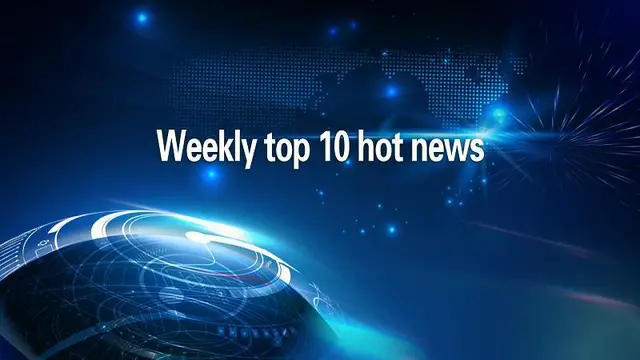Every weekend, Asia Pacific Daily will provide you with a run-down of the latest hot news.
This week, the following hot news you should know:
Top 1 | Kanye West breaks ranks with Trump, vows to win presidential race
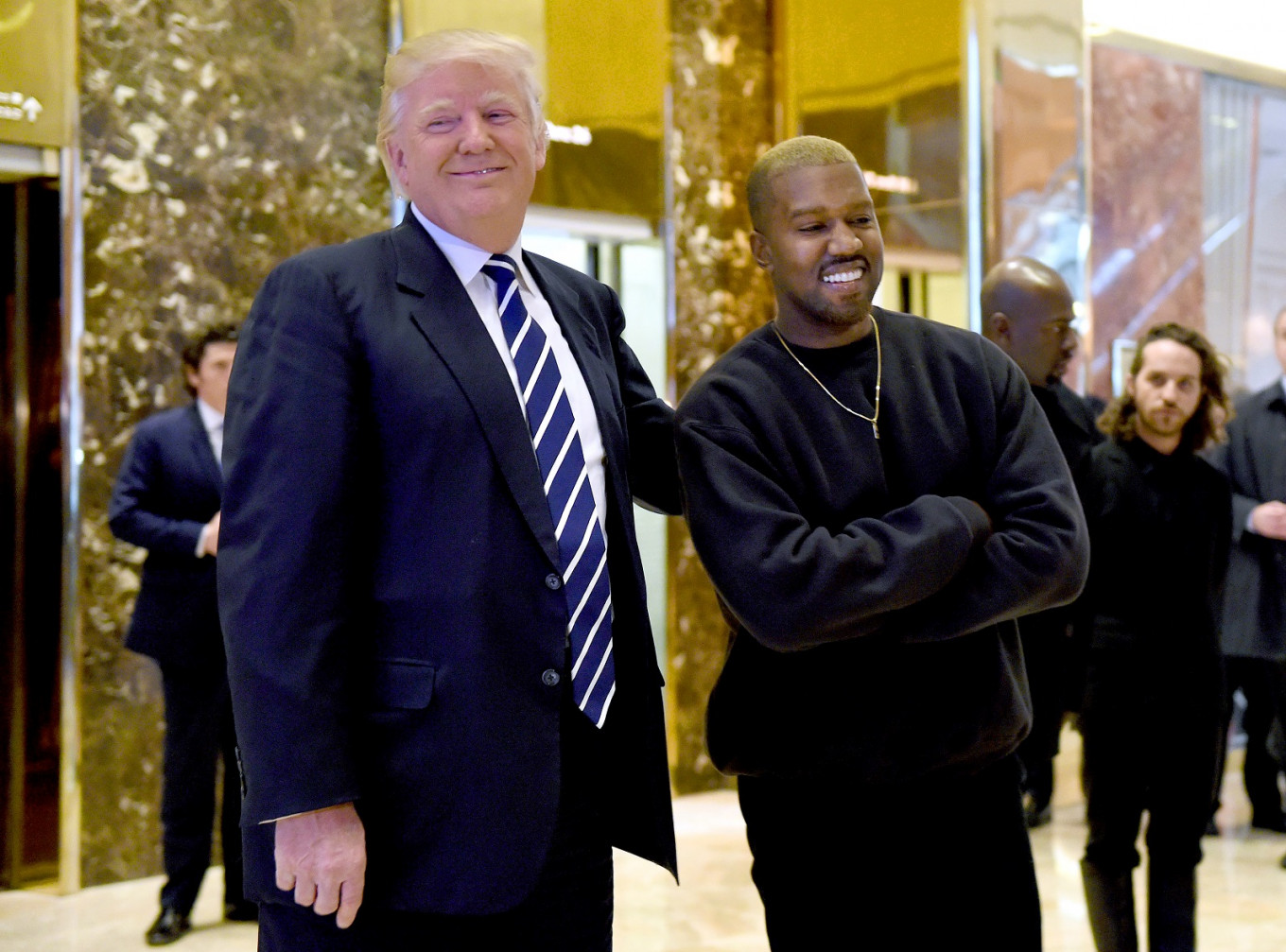
Rapper Kanye West signaled he no longer supported U.S. President Donald Trump and said he would enter the presidential race to win it, according to an interview published on Wednesday.
West, previously a vocal supporter of Trump, announced on Saturday that he would run for president in 2020. West and his reality TV star wife Kim Kardashian West have visited Trump in the White House.
There was no record of West filing any official paperwork with the Federal Election Commission. The deadline to add independent candidates to the ballot has not yet passed in many states. West denied that his aim was to split the Black vote and hurt the chances of Trump’s Democratic opponent, Joe Biden. It was “a form of racism and white supremacy” to suggest all Black people should support the Democrats, he said.
Top 2 | U.S. official withdrawal from WHO triggers widespread criticism
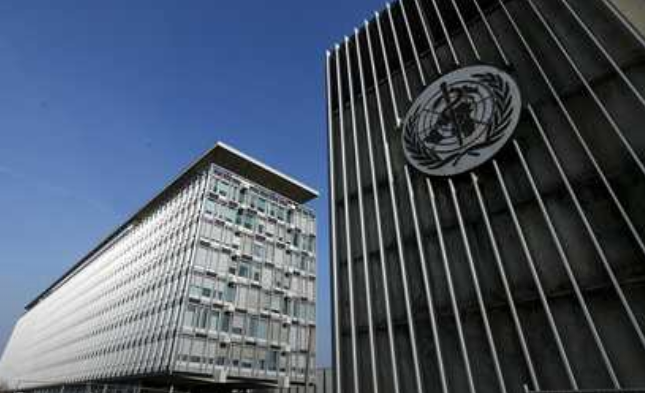
After the Trump administration made formal its intention to pull the U.S. out of the World Health Organization (WHO), it drew criticisms from bipartisan lawmakers, medical associations, advocacy organizations and allies abroad.
Objection to the withdrawal is most fierce in Trump's home territory, as the coronavirus case count is unrelentingly rising and Americans are the ones most affected by the move.
The U.S. would lose access to the WHO's global system for sharing critical outbreak data and vaccines, slow the U.S.'s ability to return to normalcy in the post-pandemic world, and jeopardize the country's ability to prepare and react to future pandemics, the letter argued. And because the U.S. was the largest WHO donor, its withdrawal means that a number of WHO programs would suffer as a result of a decline in funding.
Top 3 | Seoul mayor’s death prompts sympathy, questions of his acts
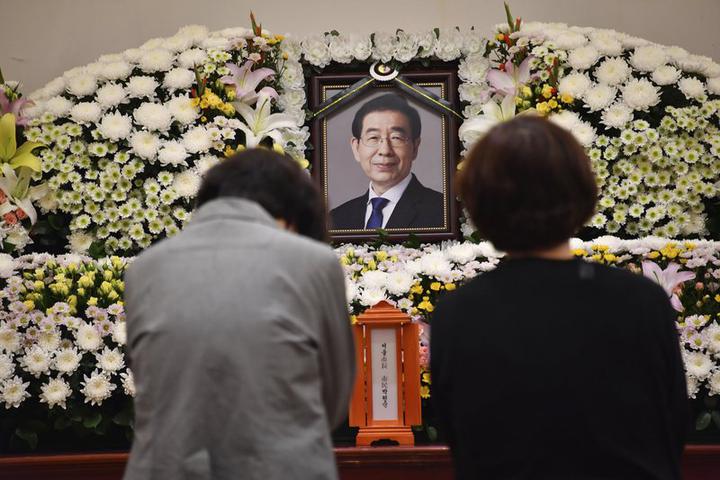
The sudden death of Seoul’s mayor, reportedly implicated in a sexual harassment complaint, has prompted an outpouring of public sympathy even as it has raised questions about a man who built his career as a reform-minded politician and self-described feminist.
Park Won-soon was found dead on a wooded hill in northern Seoul early Friday, about seven hours after his daughter reported to police he had left her a “will-like” verbal message and then left their home. Authorities launched a massive search for the 64-year-old Park before rescue dogs found his body. Police said there was no sign of foul play at the site though they refused to disclose the cause of death. On Friday morning, Seoul officials said they were releasing what they called Park’s “will” found at his residence at the request of his family.
Park was a huge figure in South Korean politics. As a former human rights lawyer, he led two of South Korea’s most influential civic groups and was mayor of Seoul, the South Korean capital city with 10 million people, since 2011. He was widely considered a leading liberal candidate for president when his political ally and current President Moon Jae-in’s single five-year term ends in 2022. His death shocked many.
Top 4 | Sentence on ex-S.Korean president Park reduced to 20 years in prison
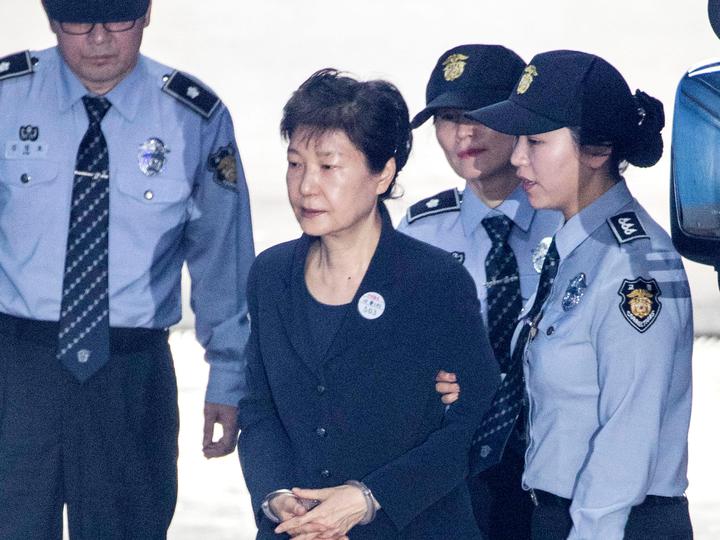
The sentence on former South Korean President Park Geun-hye was reduced to 20 years in prison on Friday in a retrial of the corruption scandal that led to the impeachment of the former head of state, according to local media.
The Seoul High Court sentenced Park to 15 years in jail for bribery and another five years for other charges with a fine of 18 billion won (15 million U.S. dollars) and a forfeit of 3.5 billion won (2.9 million U.S. dollars).
It was commuted from the combined sentences of 30 years in prison with the 20 billion-won (16.6 million U.S. dollars) fine and the 2.7 billion-won (2.2 million U.S. dollars) forfeit, which the appellate court separately handed down in rulings in 2018 and 2019 each. The Supreme Court sent the two cases back to the high court last year, acquitting a part of extortion and abuse of power charges.
Top 5 | Putin signs decree to introduce constitutional amendments after all-Russian vote
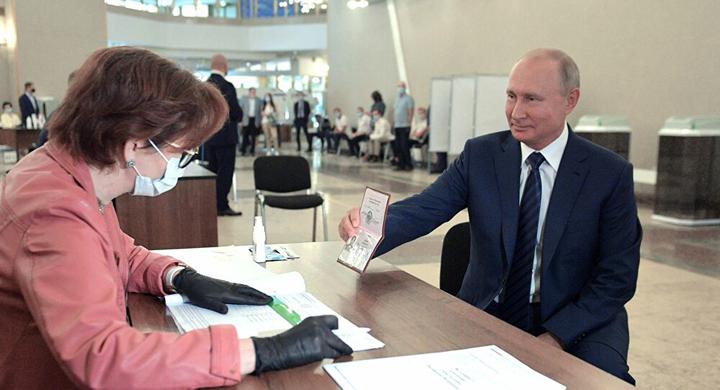
A week-long referendum on introducing an array of amendments to the Russian Constitution concluded on 1 July with 77.92% of citizens voting in favour of adopting the changes to the basic law.
Russian President Vladimir Putin has signed a decree authorising the introduction of changes to the country's constitution, stressing during an online press conference that he has done so only because these amendments were supported by the majority of Russian citizens. The amendments will take effect on 4 July, the Kremlin clarified.
The amendments passed both chambers of the Russian parliament on 11 March, but the president insisted that he would only sign them into law if the Russian people support them. Following a postponement caused by the coronavirus pandemic, a referendum on changes to the country's basic law was carried out between 25 June and 1 July, with the voting being stretched to nearly a week to prevent overcrowding at polling stations and maintain proper social distancing.
Top 6 | Brazilian President Jair Bolsonaro tests positive for COVID-19
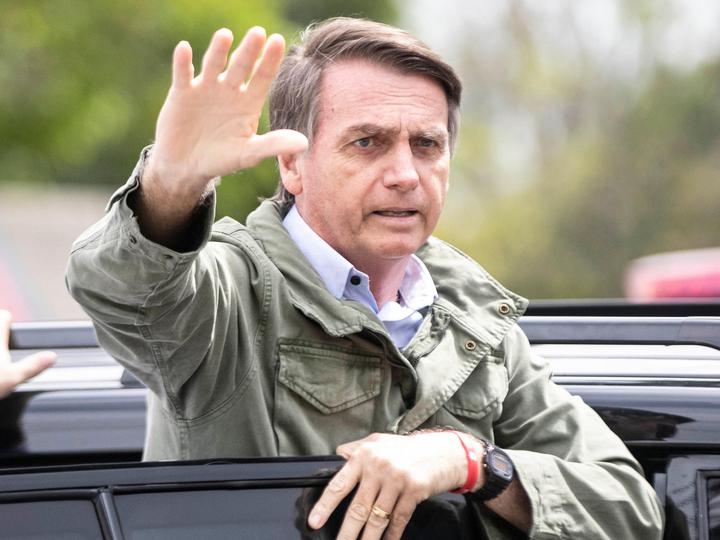
Brazilian President Jair Bolsonaro announced on Tuesday that he has tested positive for the novel coronavirus.
Bolsonaro came down with symptoms on Monday, including a fever of 38 degrees Celsius, cough and headache, leading to a test at the Brazilian Armed Forces Hospital. Bolsonaro canceled planned visits to the states of Bahia and Minas Gerais this week, according to the state news agency Agencia Brasil. The president is considered to be in the high-risk group for COVID-19 due to his age, 65.
Bolsonaro campaigned for continued economic activity and often appeared in public without a face mask and disregarded social distancing. The president was tested three times in March, following a trip to Washington in which 20 members of his delegation or people he met with later tested positive for COVID-19.
Top 7 | Canada's Trudeau faces third ethics probe over charity grant program
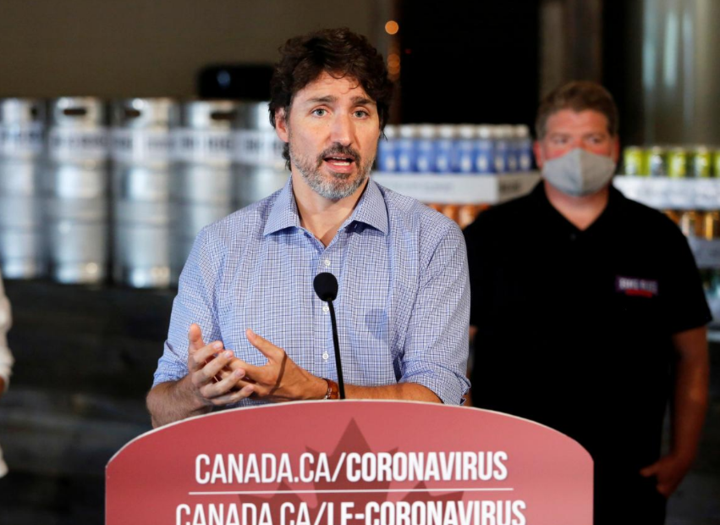
Canadian Prime Minister Justin Trudeau is facing his third conflict of interest probe after Canada's ethics commissioner on Friday launched an inquiry into a government contract awarded to a charity which Trudeau has family ties to.
Ethics Commissioner Mario Dion's office said it will look into whether in picking WE Charity Canada to administer a 900-million-Canadian-dollar (664.5 million U.S. dollars) student grant program Trudeau broke rules that prohibit politicians from making, or participating in, decisions that further their personal interests.
Trudeau, his wife and his mother were all at one time or another invited as speakers by WE Charity. Their links to the group led opposition parties to suggest preferential treatment. Dion tweeted that he had "informed" Trudeau of the decision. His investigation is confidential and will be the subject of a report once it is completed.
Top 8 | Philippine president approves controversial anti-terror bill
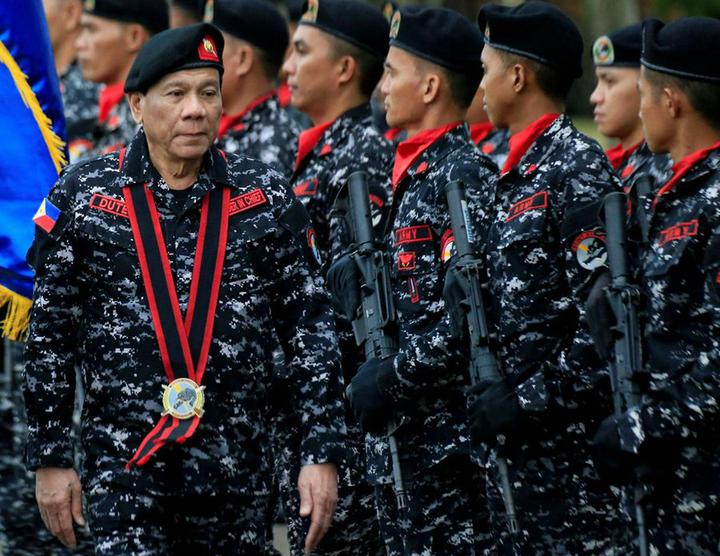
Philippine President Rodrigo Duterte approved tough anti-terrorism legislation on Friday that critics fear will be used to target his opponents, stifle free speech and promote authoritarianism in one of Asia’s most liberal democracies.
The law grants police and military sweeping powers to tackle security threats, but legal experts warn its overly broad articles could open the door to discriminatory enforcement, privacy infringements and suppression of peaceful dissent, including social media comments.
The law, which Duterte, 75, fast-tracked through both houses of Congress during a coronavirus outbreak, has been condemned by activists, while the U.N. rights chief Michelle Bachelet this week urged him not to sign it. Human Rights Watch deputy Asia director Phil Robertson said Duterte had “pushed Philippine democracy into an abyss”. Duterte aides say the new law not draconian and is based on laws in countries that have successfully dealt with extremism.
Top 9 | Senior DPRK official rules out another summit with U.S. within this year
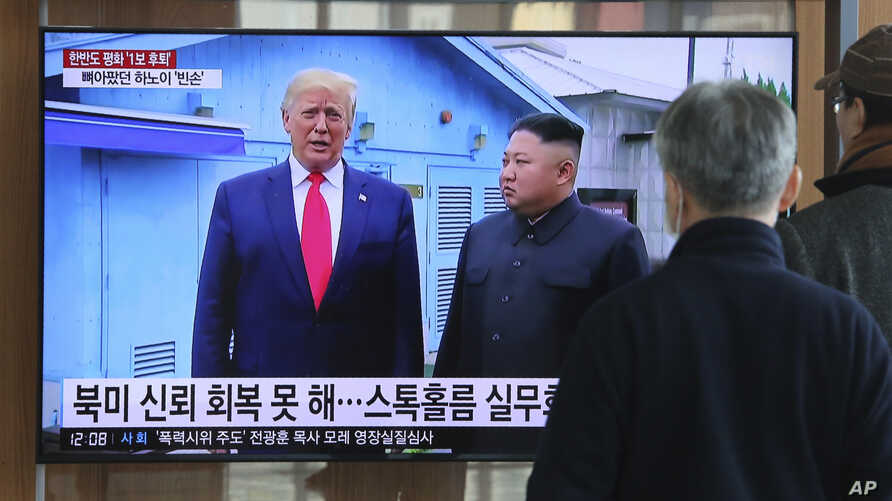
A senior official of the Democratic People's Republic of Korea (DPRK) on Friday reiterated the country's position of no talks with the United States unless Washington changes its hostile policy towards Pyongyang.
In a statement carried by the official Korean Central News Agency, Kim Yo Jong, first vice department director of the Central Committee of the Workers' Party of Korea and the younger sister of the DPRK's top leader Kim Jong Un, said another summit with U.S. President Donald Trump was "useless" as it would only benefit Trump politically and "we have nothing to gain."
Last week, South Korean President Moon Jae-in proposed another summit between Kim and Trump before the U.S. general elections to speed up the denuclearization process on the Korean Peninsula, which was later rejected by DPRK First Vice Foreign Minister Choe Son Hui.
Top 10 | Hong Kong's national security committee holds first meeting
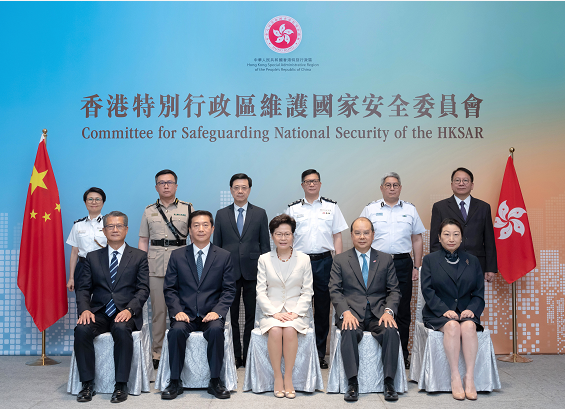
The Committee for Safeguarding National Security of the Hong Kong Special Administrative Region (HKSAR) convened its first meeting on Monday, according to a statement of the HKSAR government.
All the committee members attended the meeting, including its chair, Carrie Lam, who is also the chief executive of the HKSAR. The national security adviser to the committee appointed by the central government sat in on the meeting.
The committee was established on July 3, in accordance with stipulations of the Law of the People's Republic of China on Safeguarding National Security in the Hong Kong Special Administrative Region.
Related news:
APD | US exit from WHO to jeopardize efforts to combat deadly diseases
APD | Europe needs a new relationship with China
(ASIA PACIFIC DAILY)
 简体中文
简体中文

